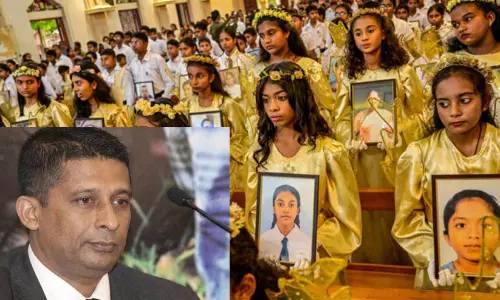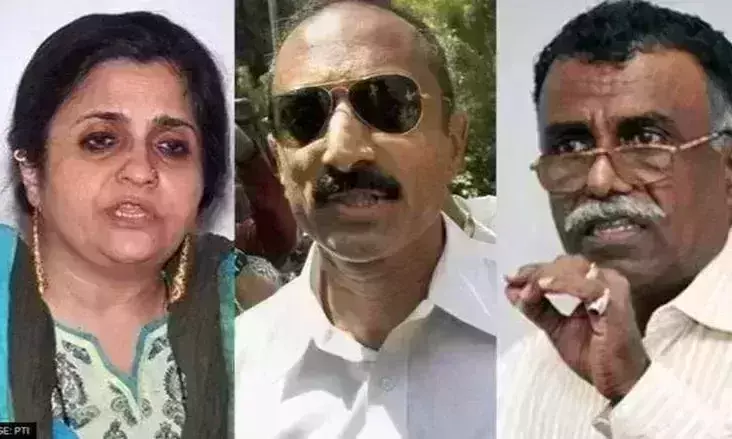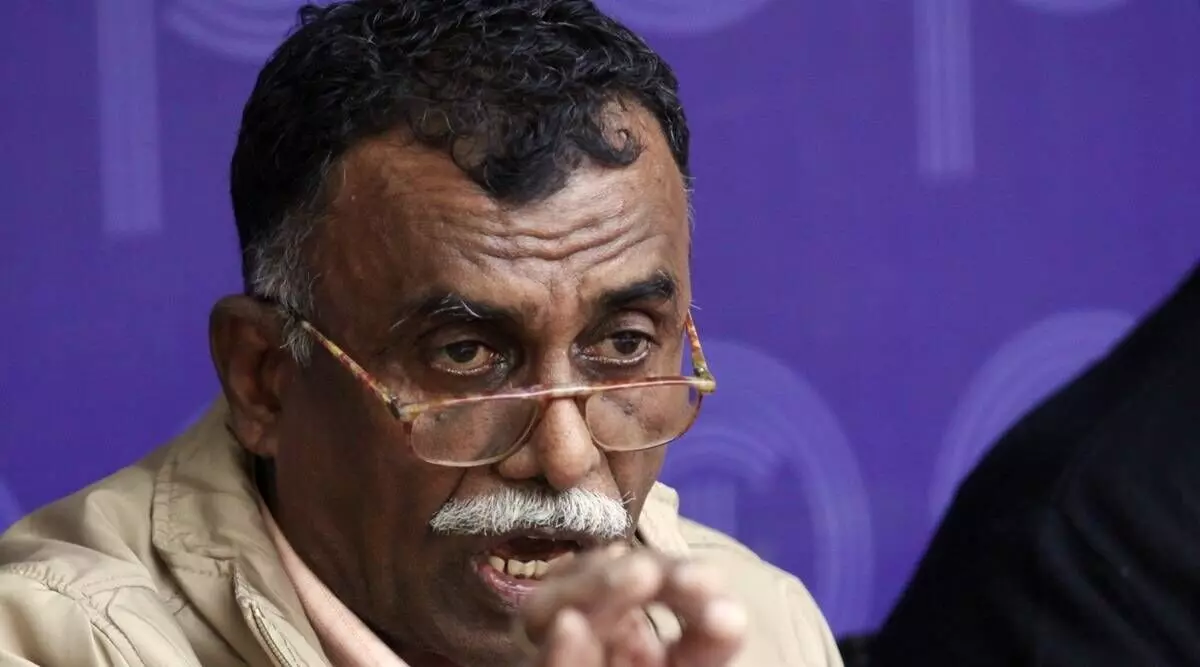
Will seeking justice become conspiracy?
text_fieldsTeesta Setalvad, Sanjay Bhatt & RB Sreekumar
Even the adjective 'most unfortunate' becomes totally insufficient to describe the verdict pronounced on Friday by the Supreme Court, dismissing Zakia Jafri's petition. During the 2002 Gujarat genocide, 69 people, including Zakia's husband Ehsan Jafri, were killed in the massacre committed by rioters at the Gulbarg Society in Ahmedabad. The court had rejected the petition that sought an inquiry into the role of 63 personages, including the then Gujarat Chief Minister Narendra Modi, in the massacre.
A Supreme Court bench of Justices AM Khanwilkar, Dinesh Maheshwari and CT Ravi Kumar upheld the report of the Special Investigation Team (SIT), which the court earlier appointed, giving clean chit to Modi and others. The state's indifference and failure in the Gujarat genocide is no evidence of conspiracy. The court said: there is no need for further investigation into the genocide conspiracy; accepts the report submitted by the SIT after conducting a thorough investigation. As the court puts an end to the 20-year-old legal battle carried out by Zakia Jafri like this, the impression left is that justice has not been delivered
It has been observed that the judiciary's sense of justice itself is being tested in an elderly woman's struggle against the powerful. Ultimately, the message of the Supreme Court verdict to the nation has not turned out be one offering solace. In the serious case, the SIT investigation hardly convinces any that it had defended the interests of justice. Zakia's petition was highlighting this. It was pointed out that the SIT did not raise questions such as how for five hours the Chief Minister did not know about the Gulbarg Society massacre, why it took him five days to visit the place and why it took him a month to reach the relief centre where the victims were housed, how it was two months late to call the forensic experts to inspect the train coach that was burnt in Godhra and why the police failed to check the records of phone calls during the genocide.
But now, once the Supreme Court's observation that administrative failure is not evidence of a conspiracy is accepted, wouldn't it become impossible to find evidence for any conspiracy? The plaintiff had argued that the SIT ignored crucial evidence and that failure not to seize important evidence, including phones, constituted not just an administrative failure. It was also pointed out that there was no further inquiry into the witnesses' testimonies. It was probably in response to her contention about the SIT report being incorrect that the court observed that there was no issues about other cases investigated by the same SIT. Aside from the fact that questions remain in the verdict on the petition, the court's reference to Teesta Setalvad and others who assisted Zakia in the case is shocking. The message that one should not approach the court against the injustice and wrongs of the higher echelons, could not be stated more strongly than this — though the court would not have intended it. Again, even if not intended by the court, the judiciary could not mark itself more clearly as the voice of the state. Nor would the court have meant to pave the way for the government to hunt down those who back seekers of justice - but that is what happened when the central agencies targeted Teesta Setalvad, RB Sreekumar, and Sanjay Bhatt. The court, which praised the SIT, finds those who spoke against the top brass of the government as conspirators. It also says they need to be put in the dock. Those who believe in democracy, legal experts, and the judiciary itself need to seriously consider the consequences and implications of this ruling.



























